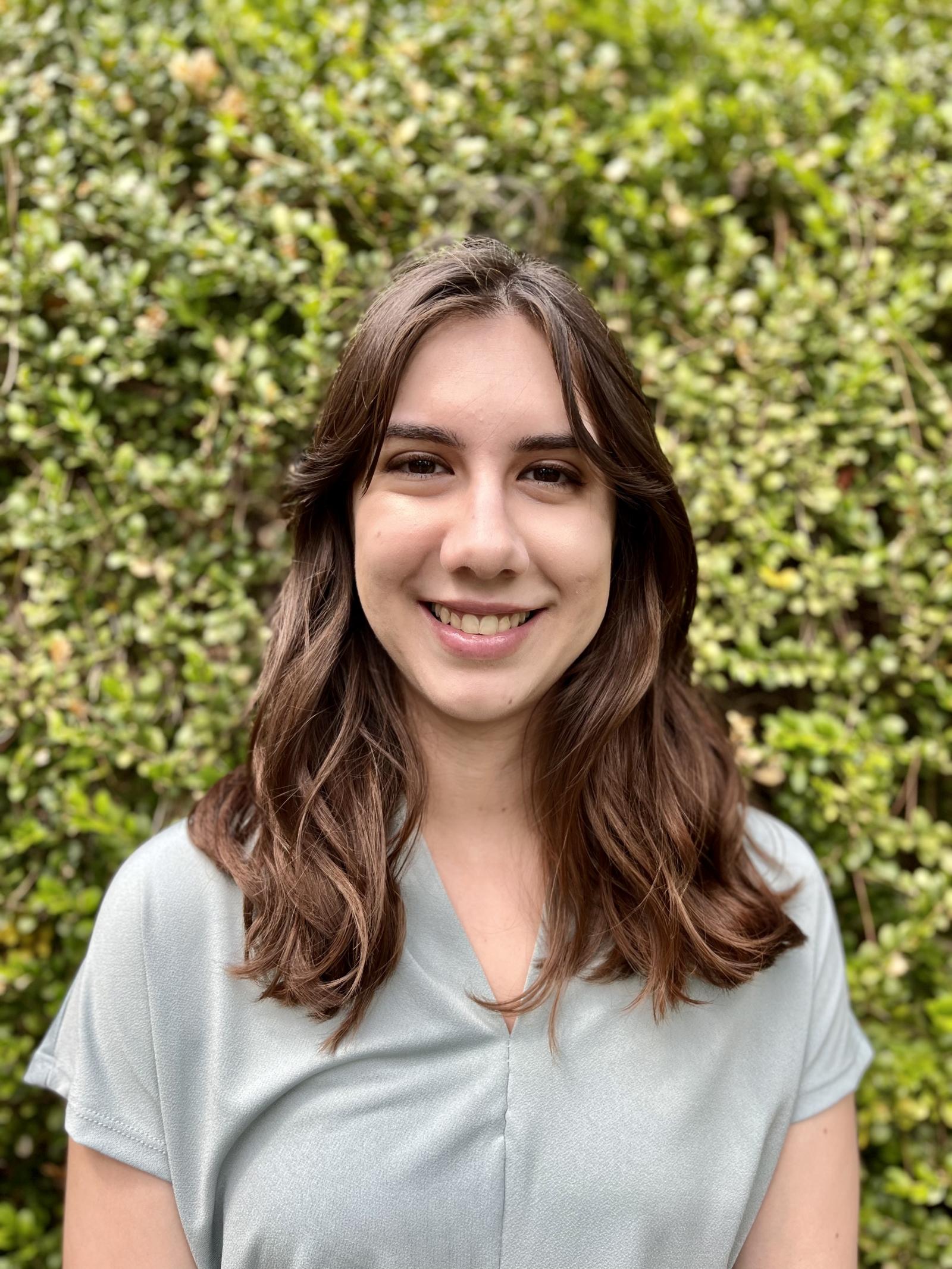Moody Graduate Student Spotlight: Stephanie Menhart
Published Summer 2023
Stephanie Menhart is a PhD candidate at the Department of Communication Studies, where she researches collaborations between humans and non-humans, automation, agency, media psychology, intersections of culture, art, and technology. She worked as a teaching assistant of the course CMS 321D Communicating for Development and Philanthropy, lead by professor Jennifer Barbour, and also as an assistant instructor of the course 306M Professional Communication Skills. In this interview, Stephanie Menhart shares some ideas and strategies about student engagement.
Stephanie Menhart

I really try to get students fully involved in the class because I wasn't a calm student originally. I was in the arts and so that was something in which we were really working closely, as a community and with our professors. I think the best learning experience comes when students are involved in the course at every level, not just learning, but also teaching, and they see the environment as collaborative, not just somebody standing in front of a room. Telling them what to do, I don't think you can really build the kind of mutual respect and trust that I really value in a classroom.
I try and make sure that students understand the reason for doing everything, so they feel more committed to what's going on and they can get excited about doing projects with them in which their own interests and their personalities get to shine through, and they get to incorporate parts of their lives and their interests, like doing speeches about things that are meaningful to them.
Or, you know, working with organizations that maybe they have a stake in or that they have some kind of personal connection to rather than ones that we just assign to them. They should feel that they have a stake in deciding the way that the class moves forward, rather than just being something that they have to do because of the degree they're getting.
Have you tried anything different focused on student engagement? Do you have any story to share about something you did that had a great outcome and maybe other faculty or graduate student can also use?
One of the most valuable things I've learned from Jennifer as an instructor is being willing to admit that you are wrong or that something is not working. Because there were times in the class where we had planned an activity and it didn't go the way that we expected, and students didn't like it.
For example, we planned some discussions with them and from class to class, some students didn't really like the format of having to sit down and discuss. We were able to kind of troubleshoot with them and change the format to be something that they find more meaningful and works better, instead of a small group discussion in which you must summarize an article and ask questions to your group mates and lead discussion.
In this way you can incorporate activities, including games or prizes in their discussion and they are much more engaged, instead of telling them we want you to follow this format, sitting down and having that conversation. This is a useful lesson for me as a teaching assistant, to learn that you don't have to have all the answers as the instructor, it's OK to let students lead what's going on and tell you I don't like this, this isn't working.
With a focus on course design and syllabus, do you have any suggestion of a strategy to enhance student engagement?
One thing that I really like is that, in the Communicating for Philanthropy and Development class, we let students have some control over setting those things up and Professor Jennifer Barbour talks about the syllabus with students and lets them incorporate some ideas. Things like an honor code where students decide what happens if they don't meet a deadline, or how they would like us to communicate with them, or what things about our job are most important to them, like returning emails within 48 hours.
We can kind of collaboratively design the course to make sure that the learning outcomes and everything that we want them to do is going to happen, and those outcomes are going to be met while also respecting the fact that they have opinions on the way that things should happen. As an experiential class, I think that's really important because there's so much variation from group to group and how students think that they should be experiencing the learning process regarding a topic. So, incorporating some flexibility into the design of a course or a syllabus helps ensure that everybody feels their needs are being met, that their voices are being heard in the classroom.

